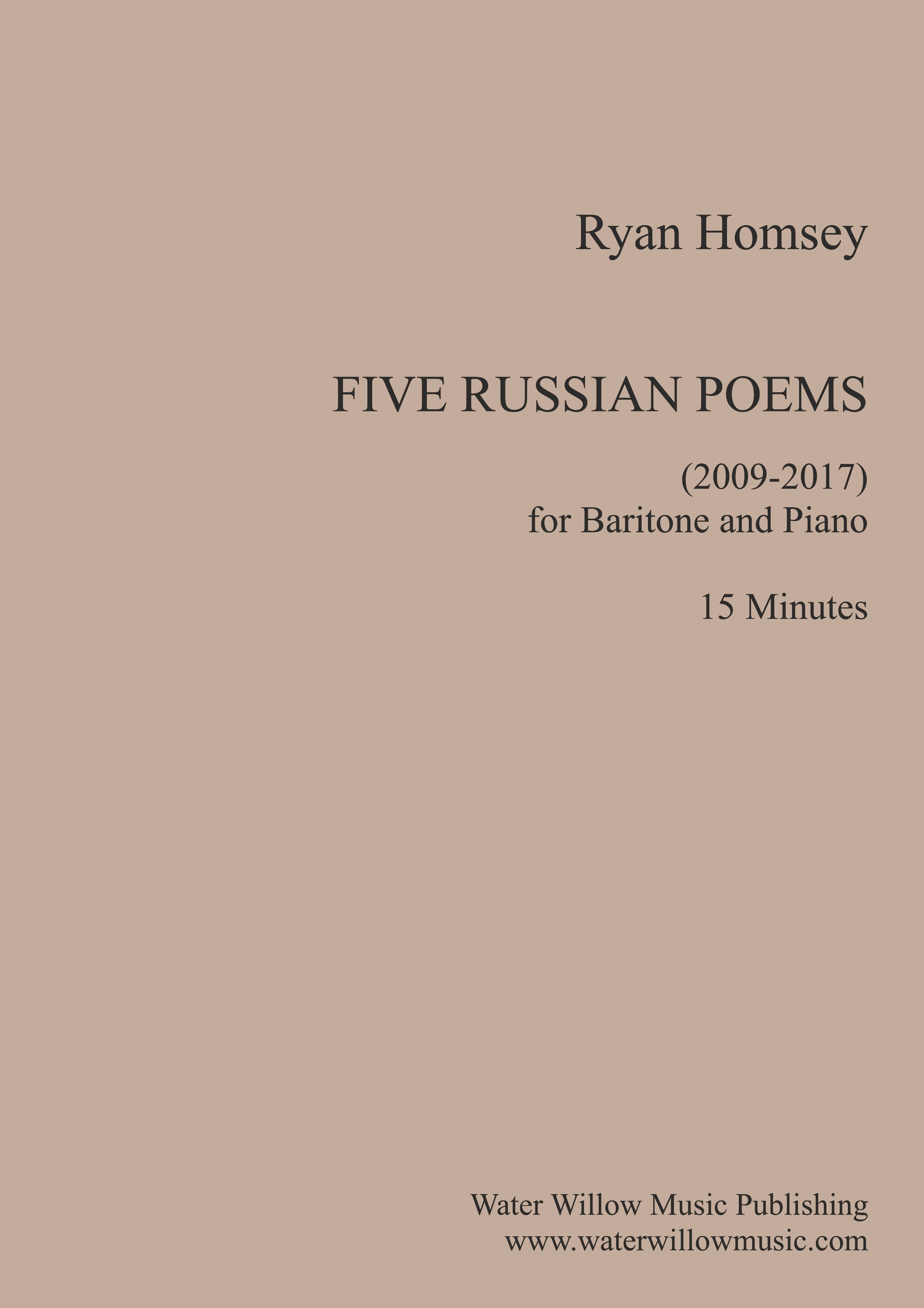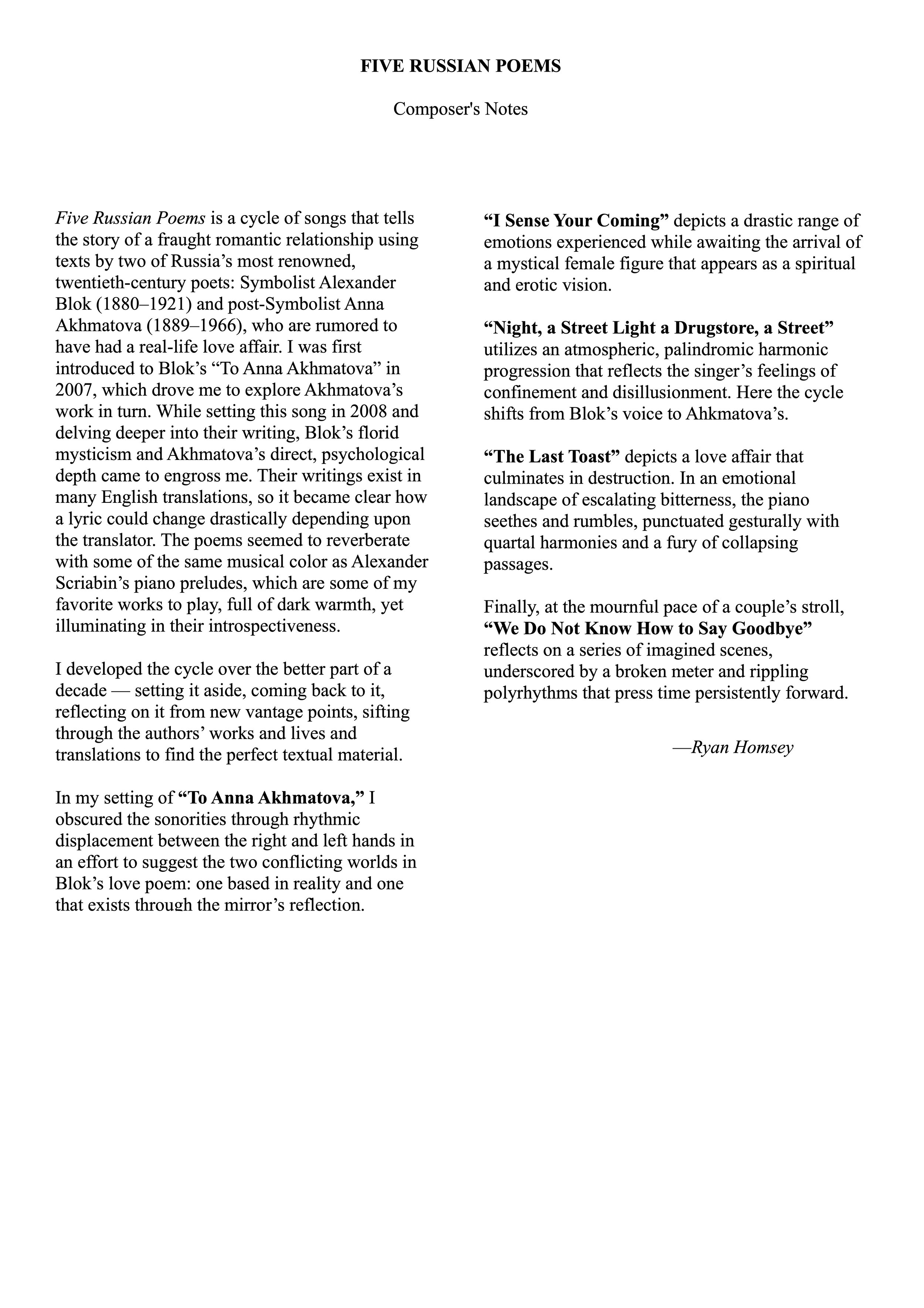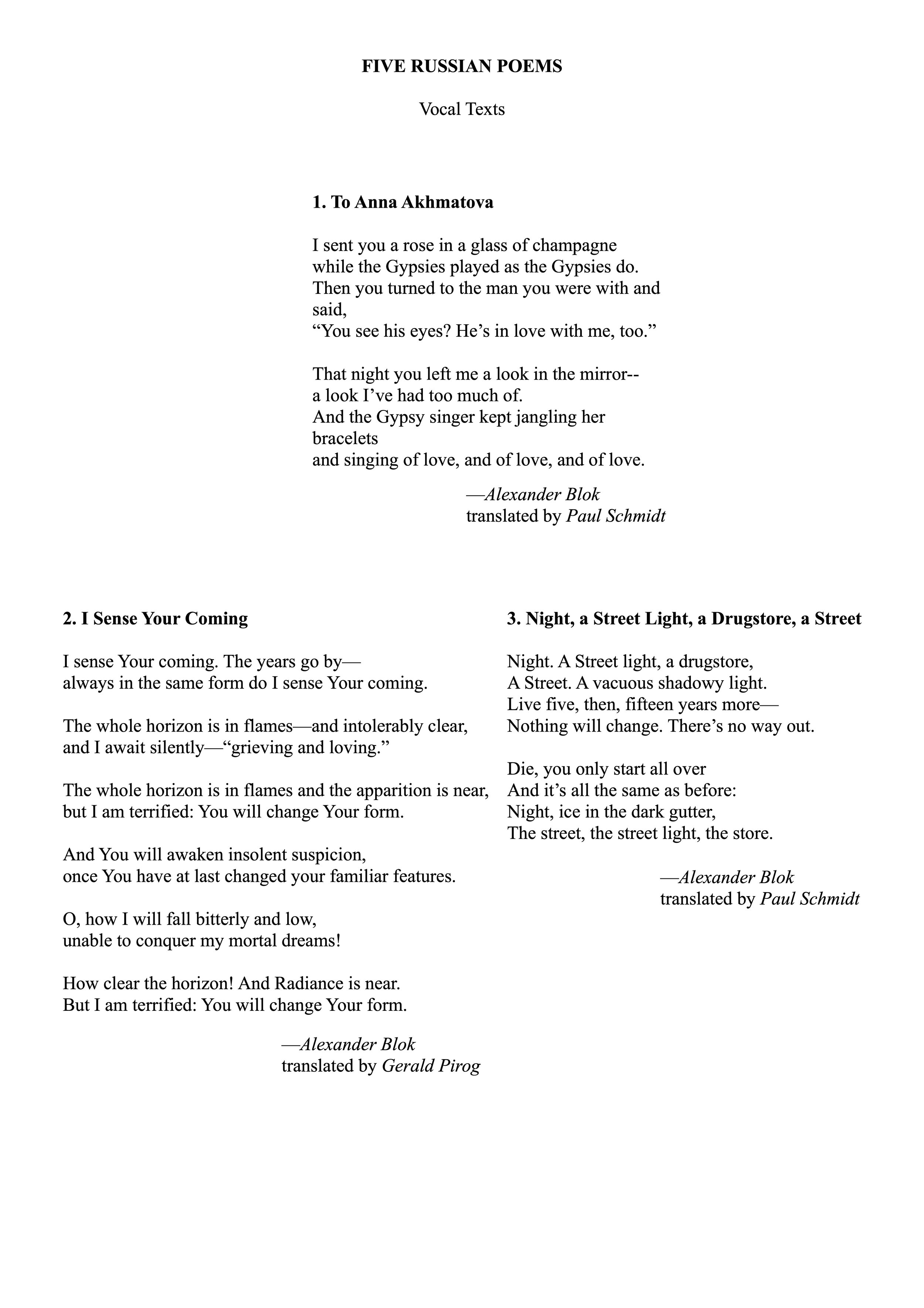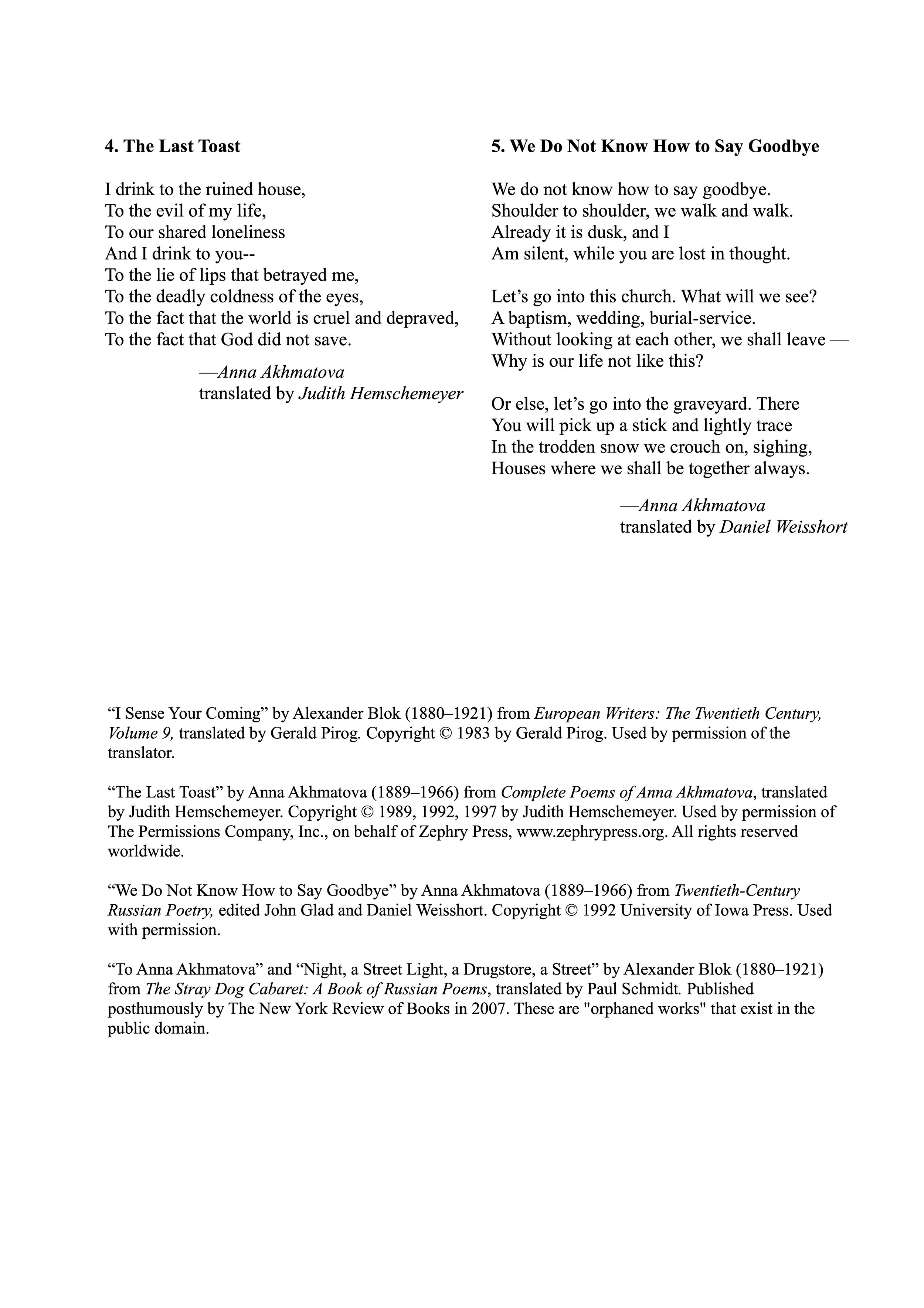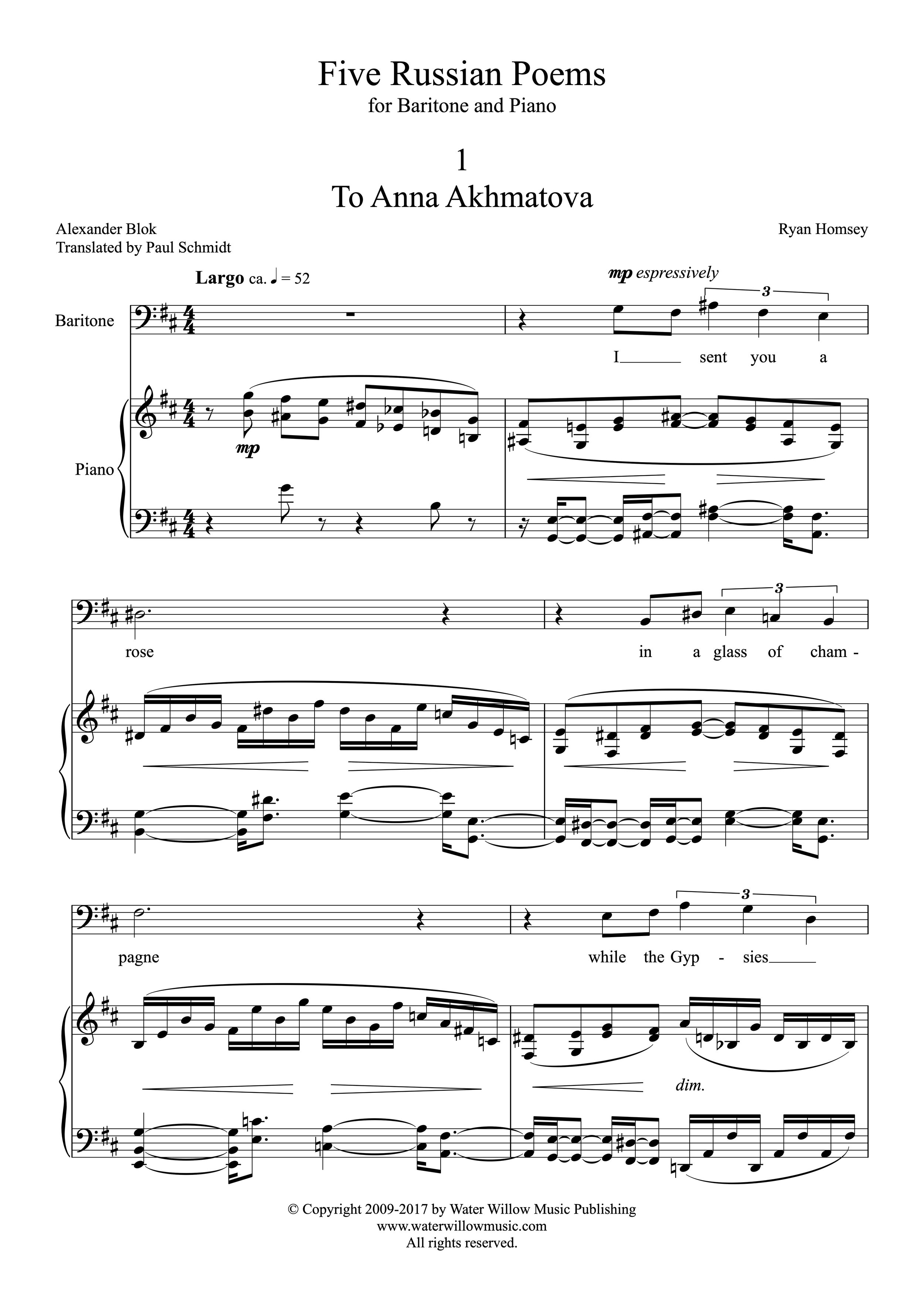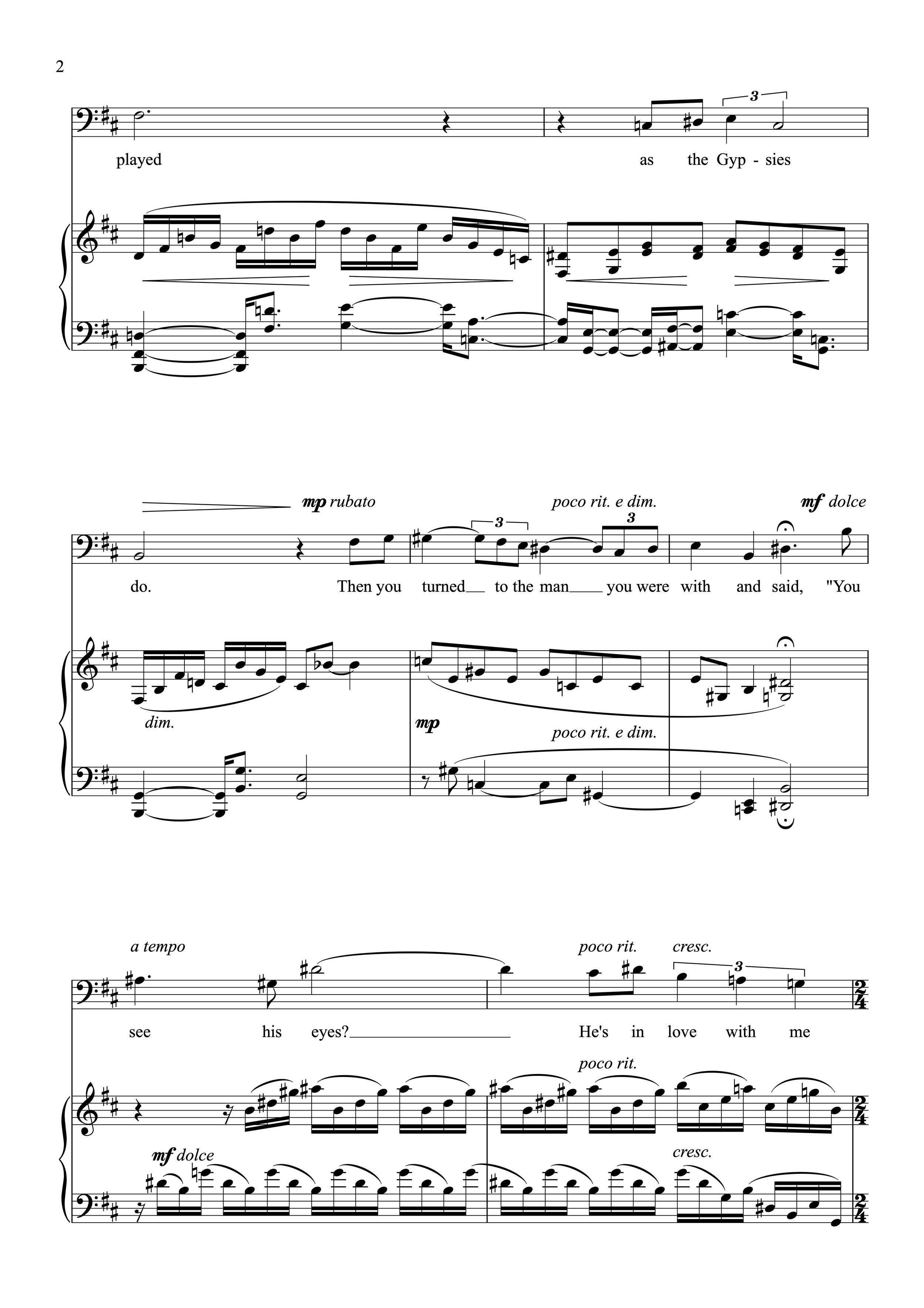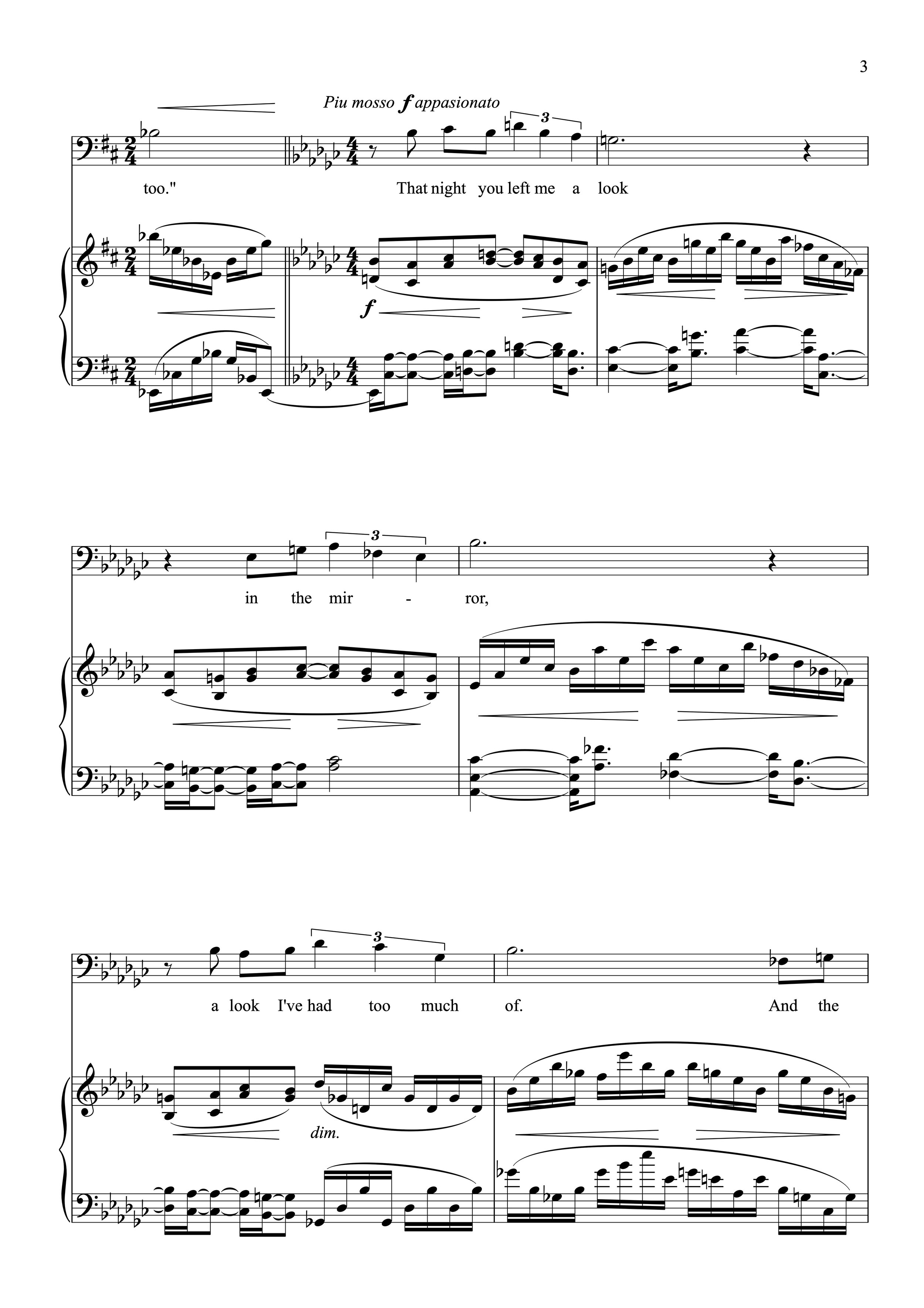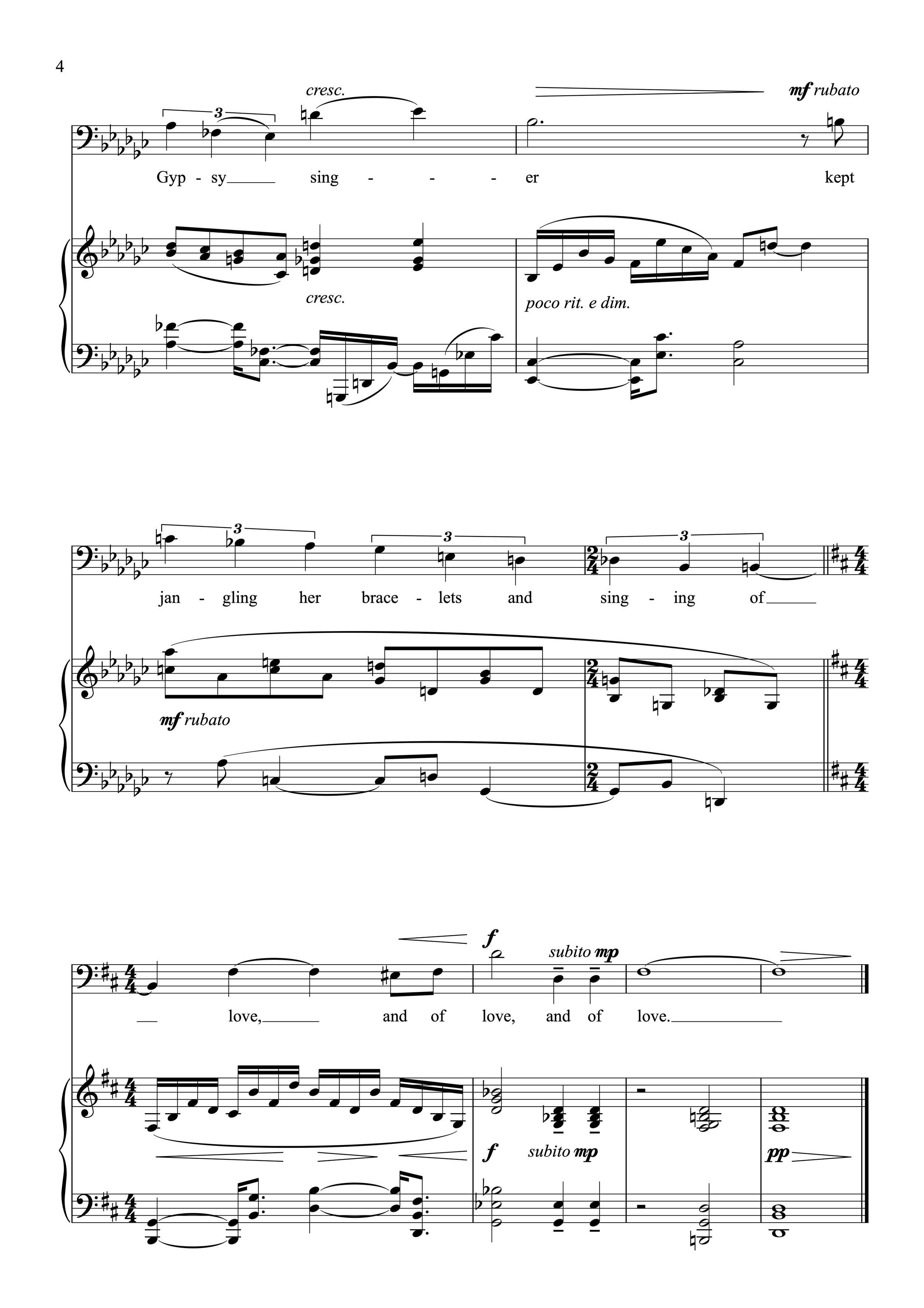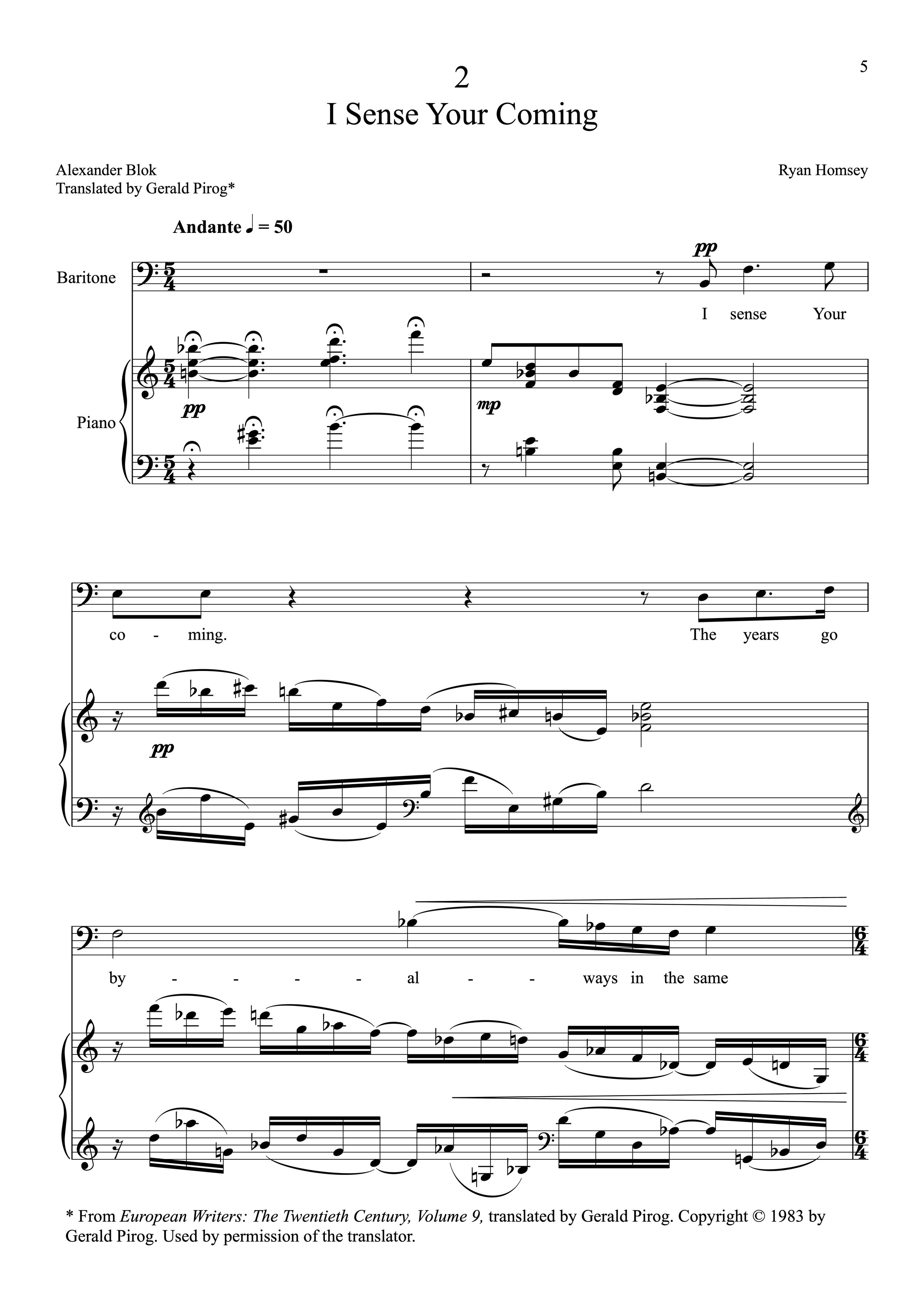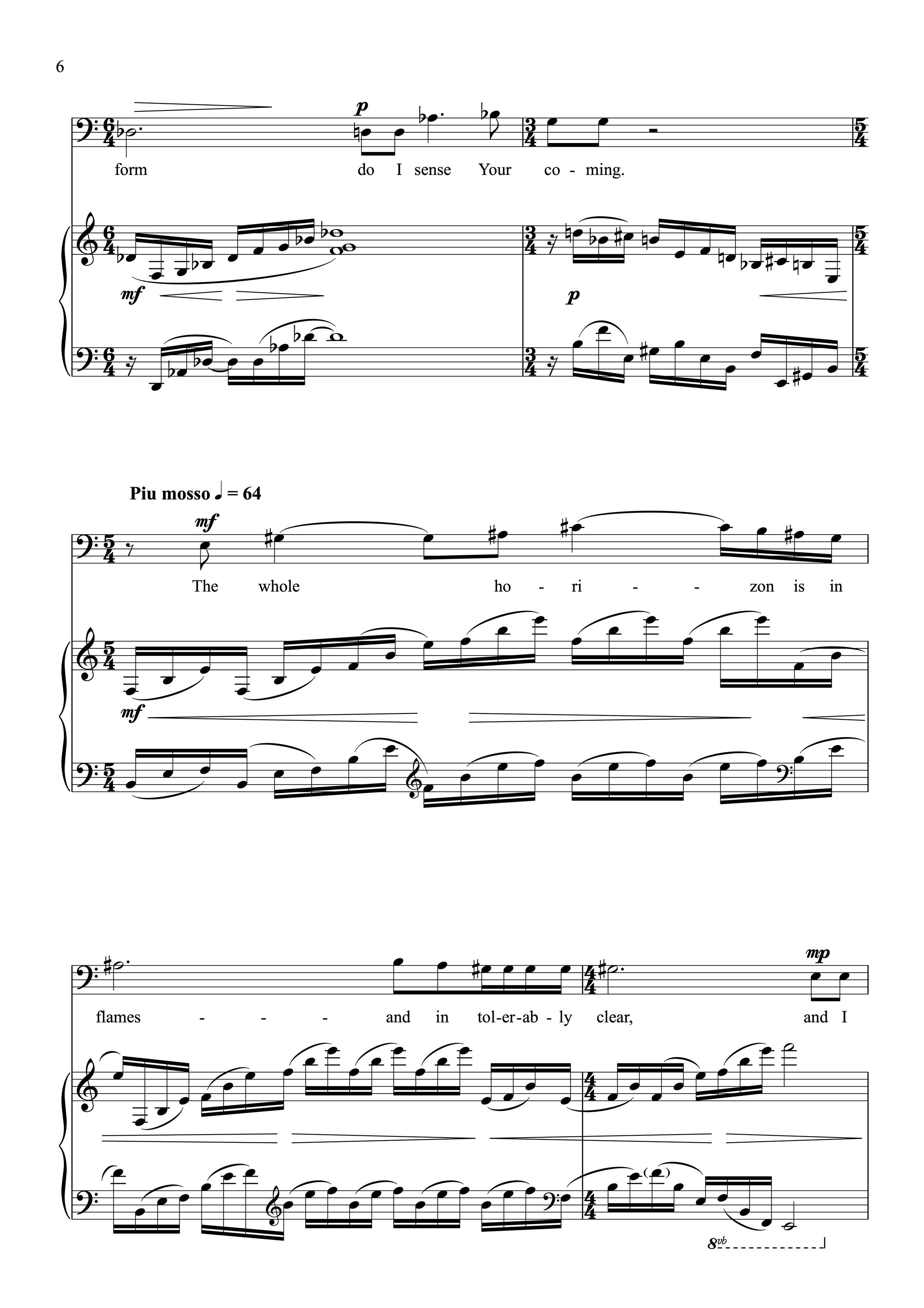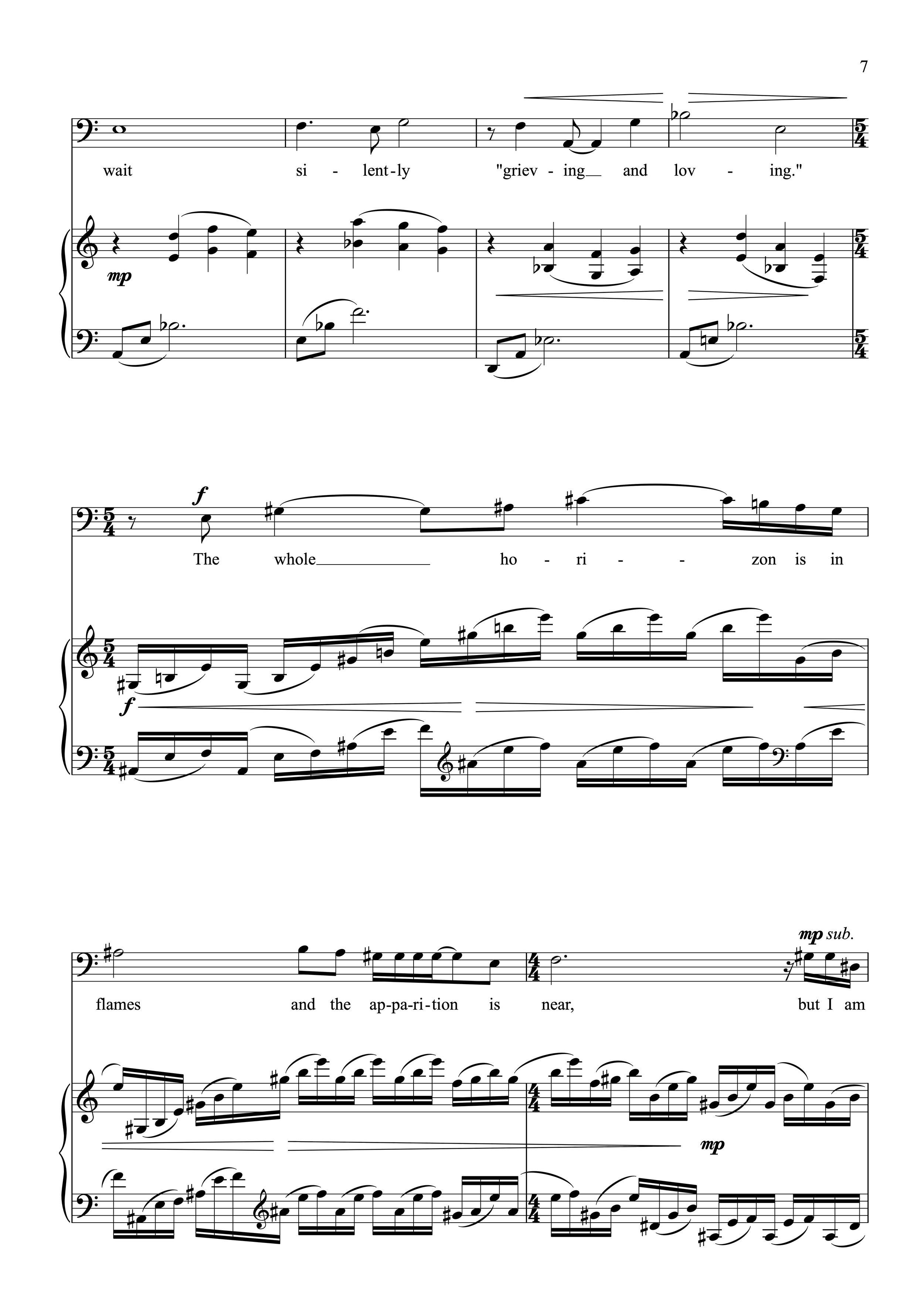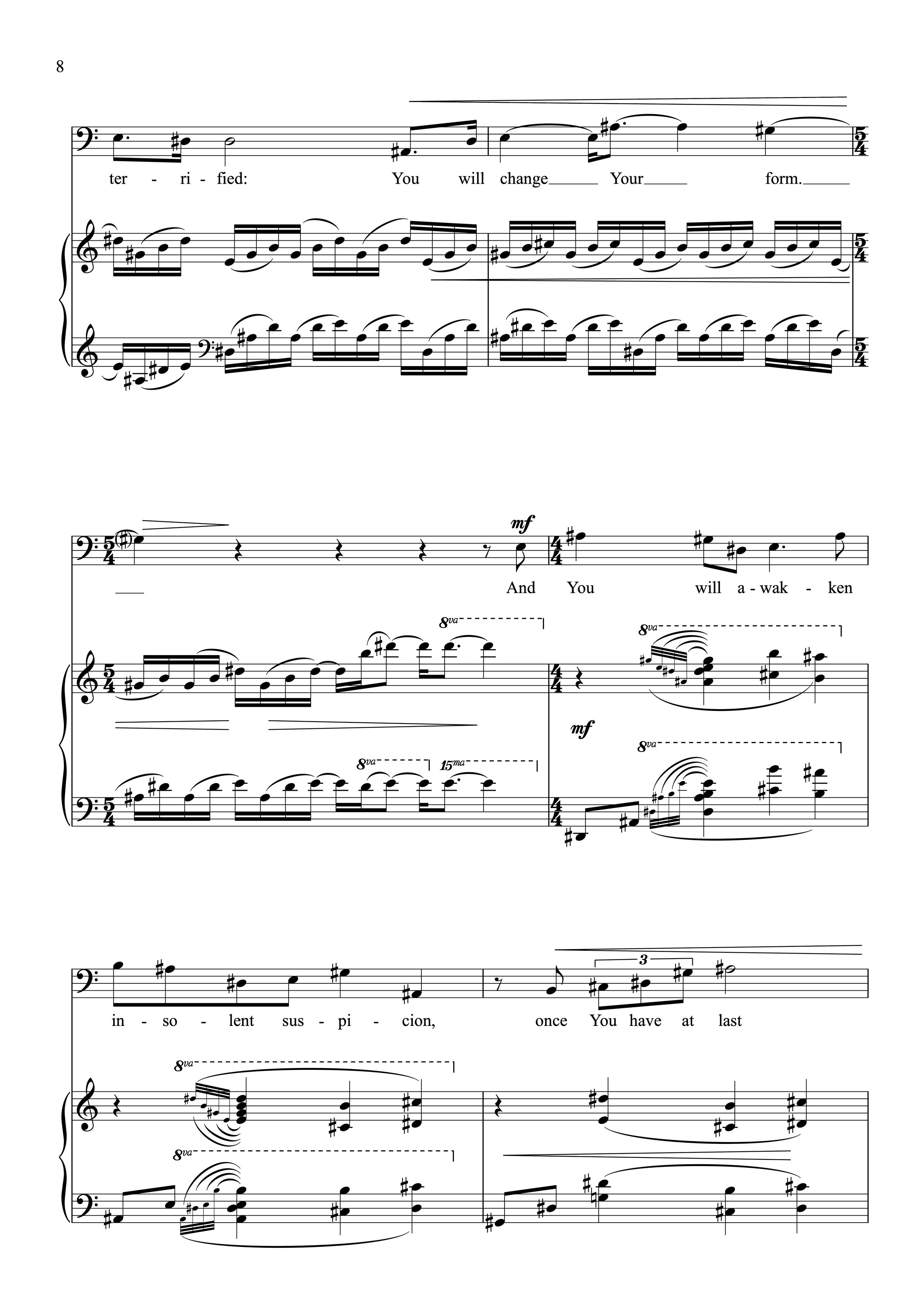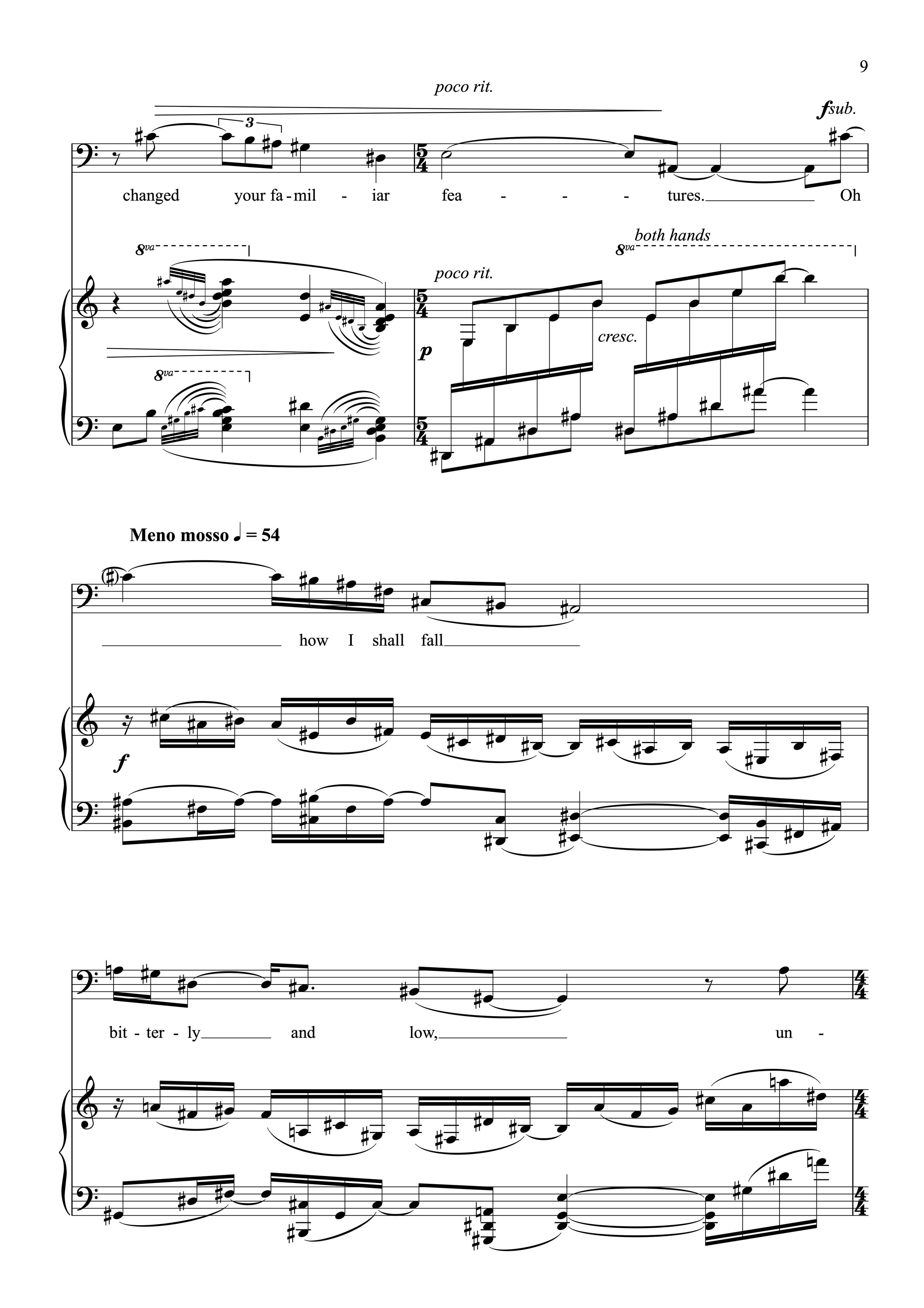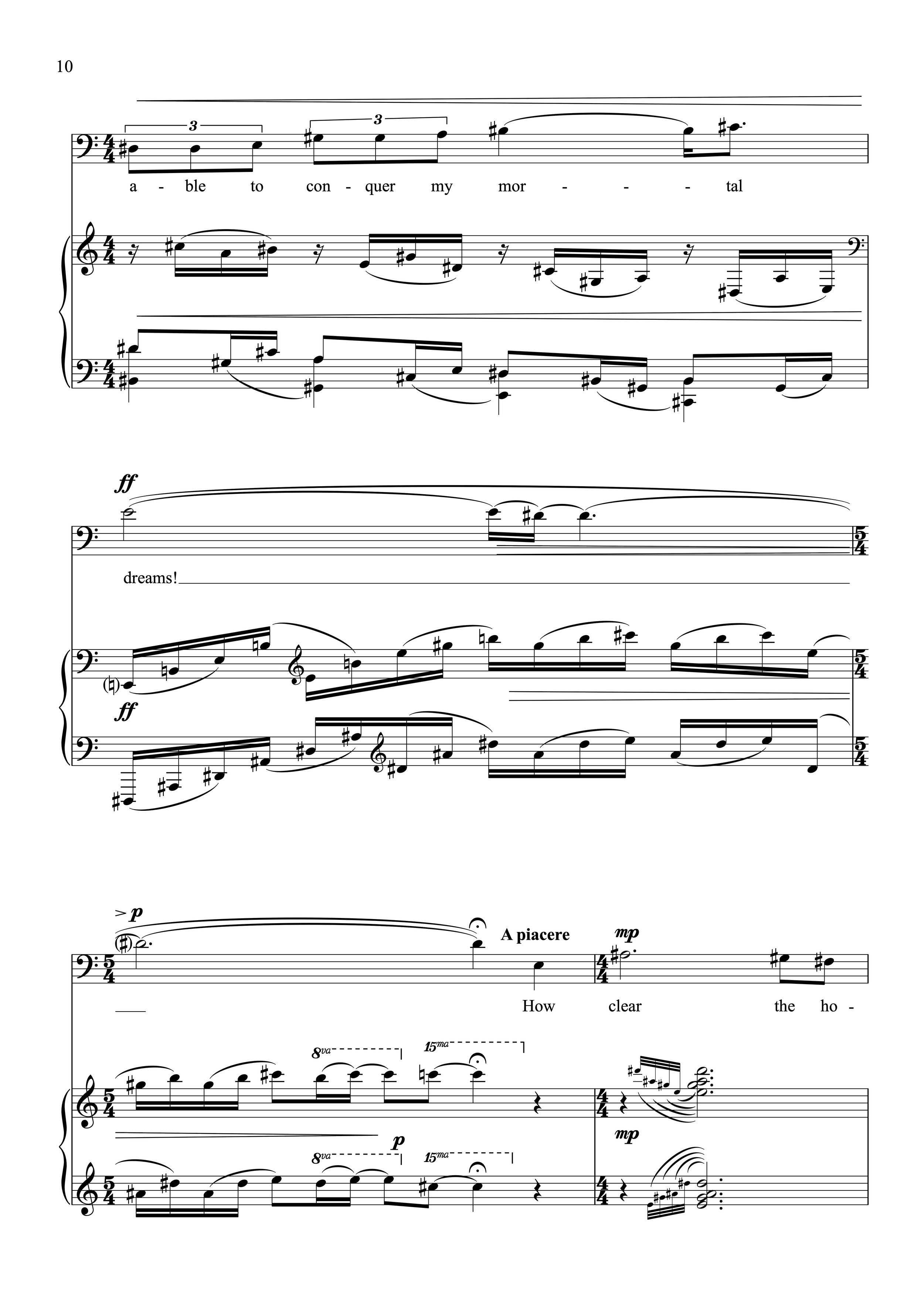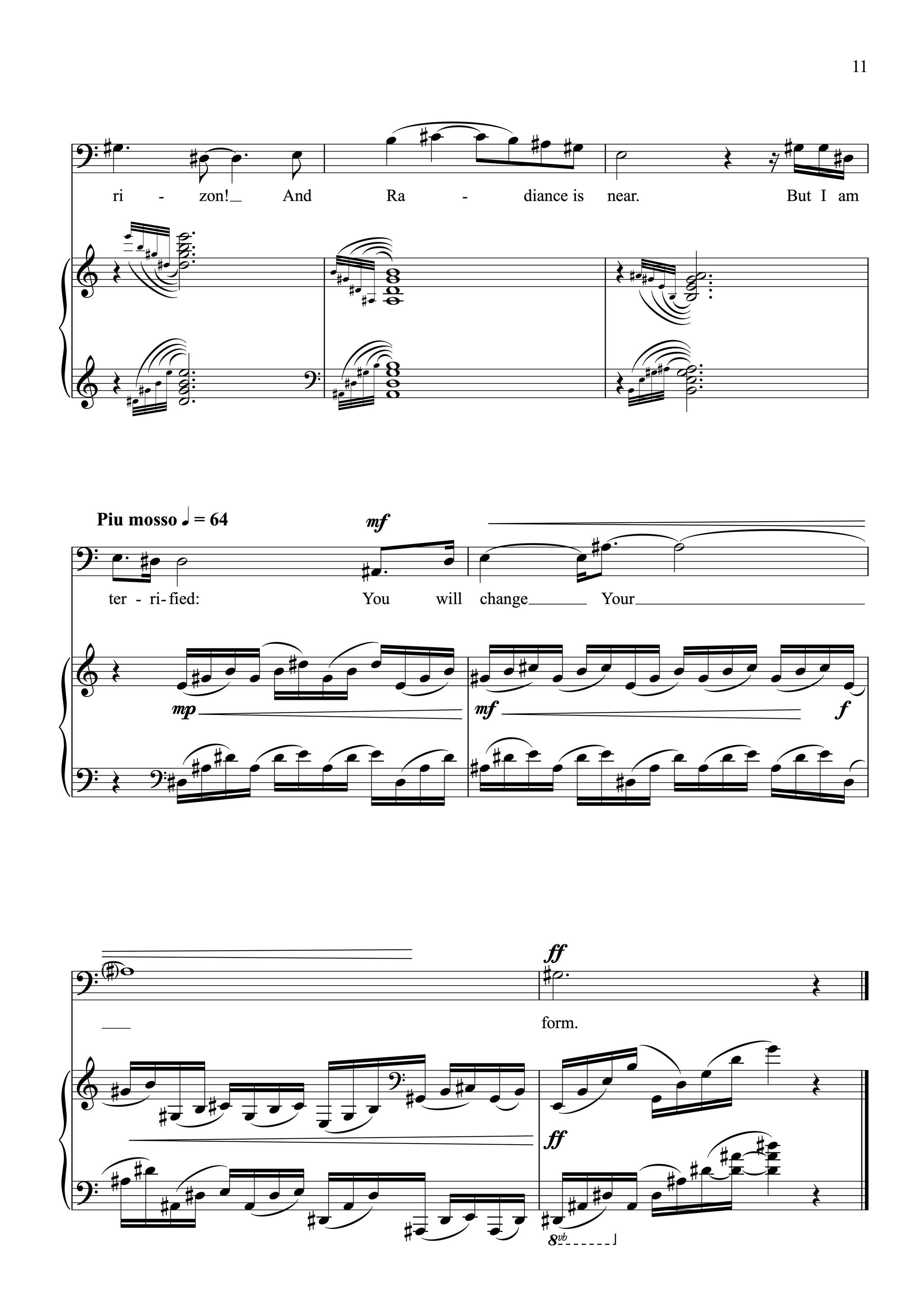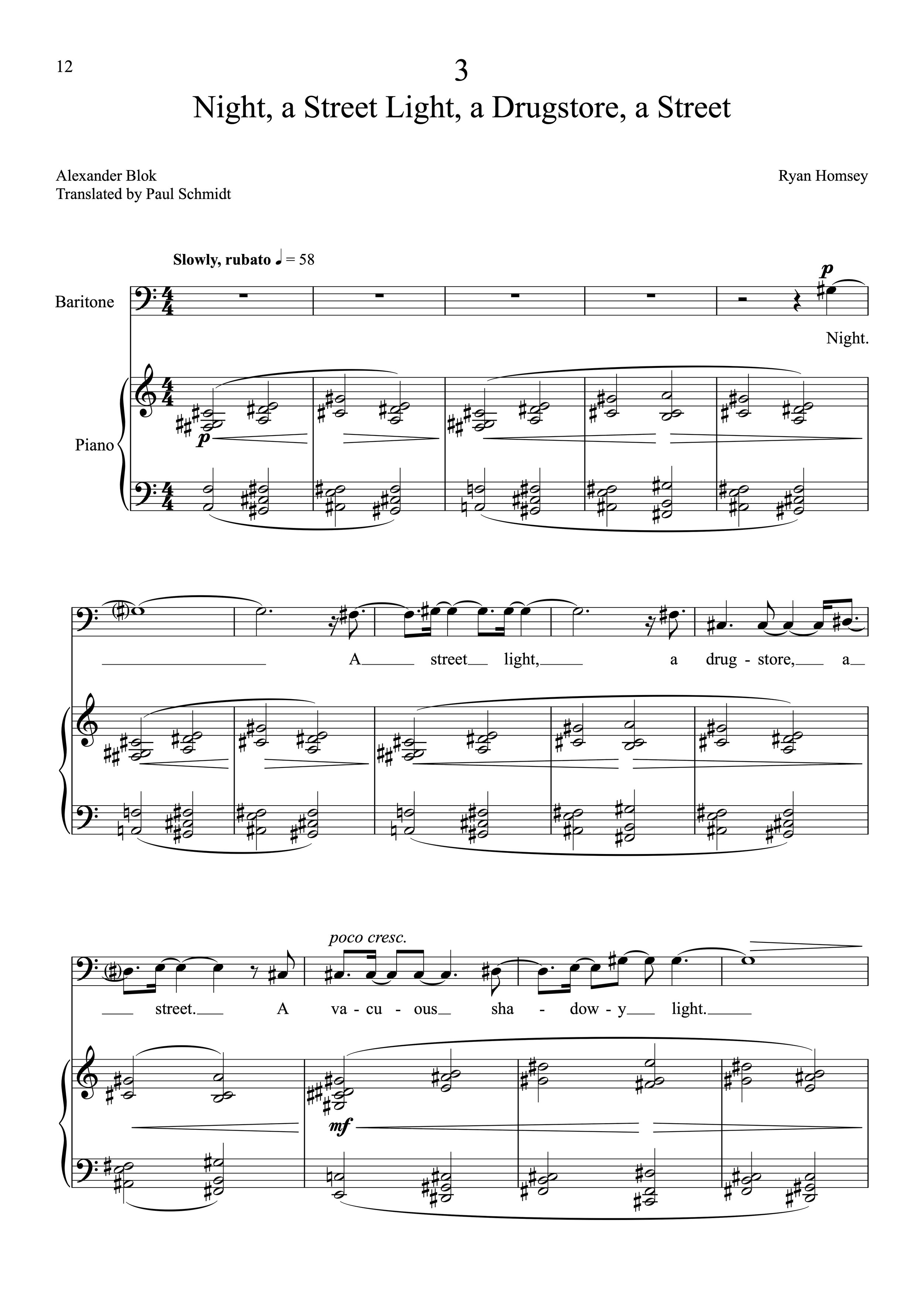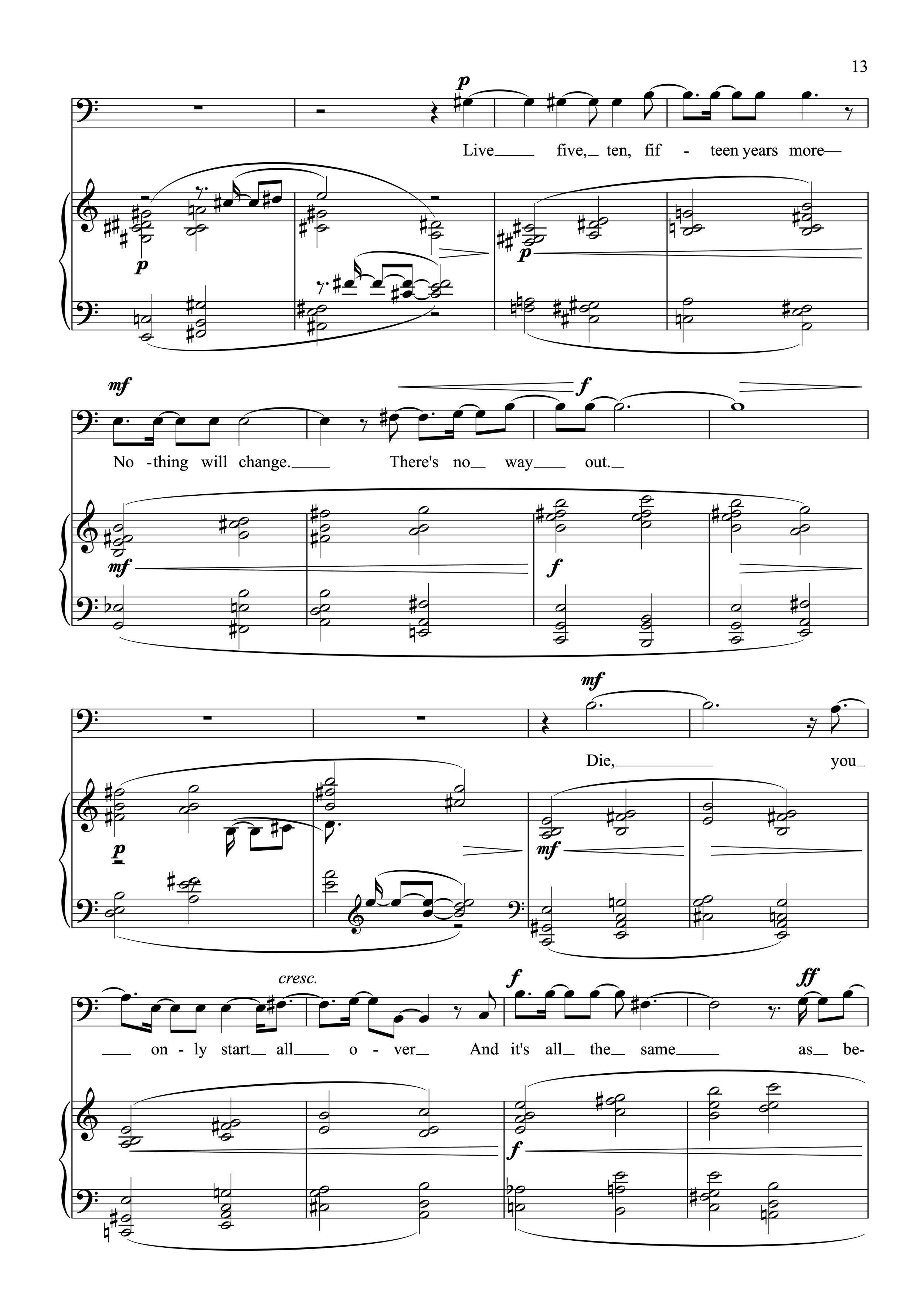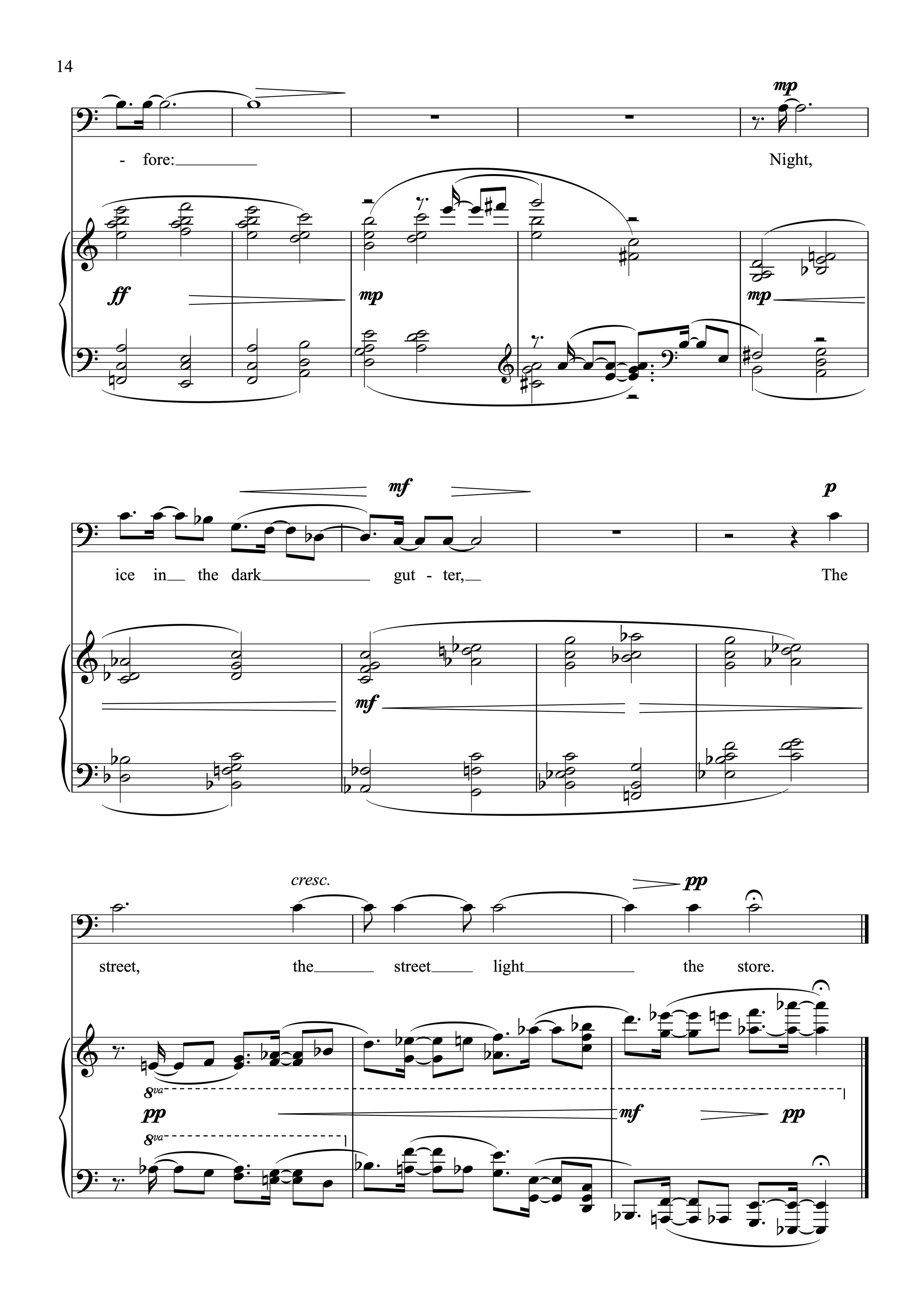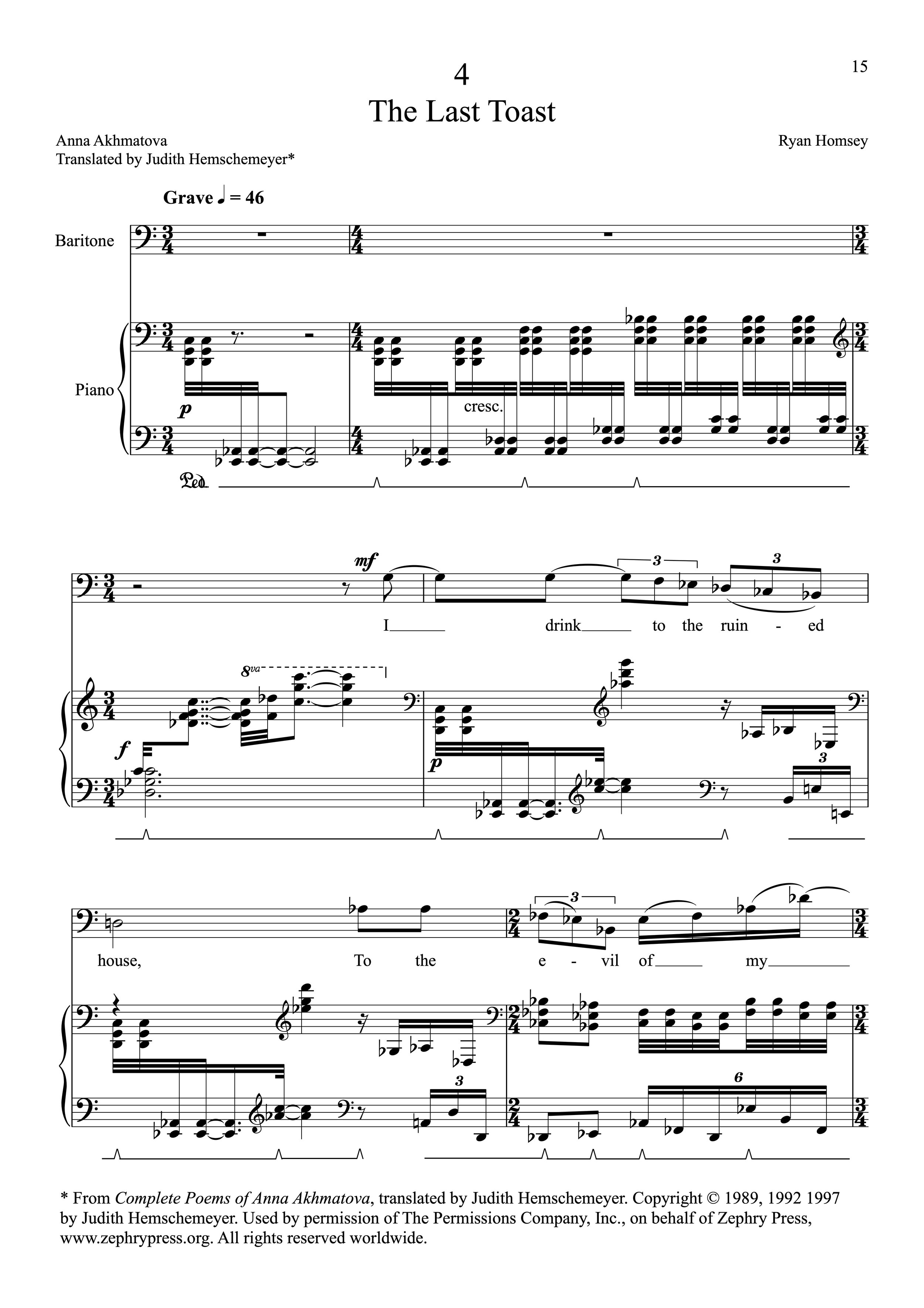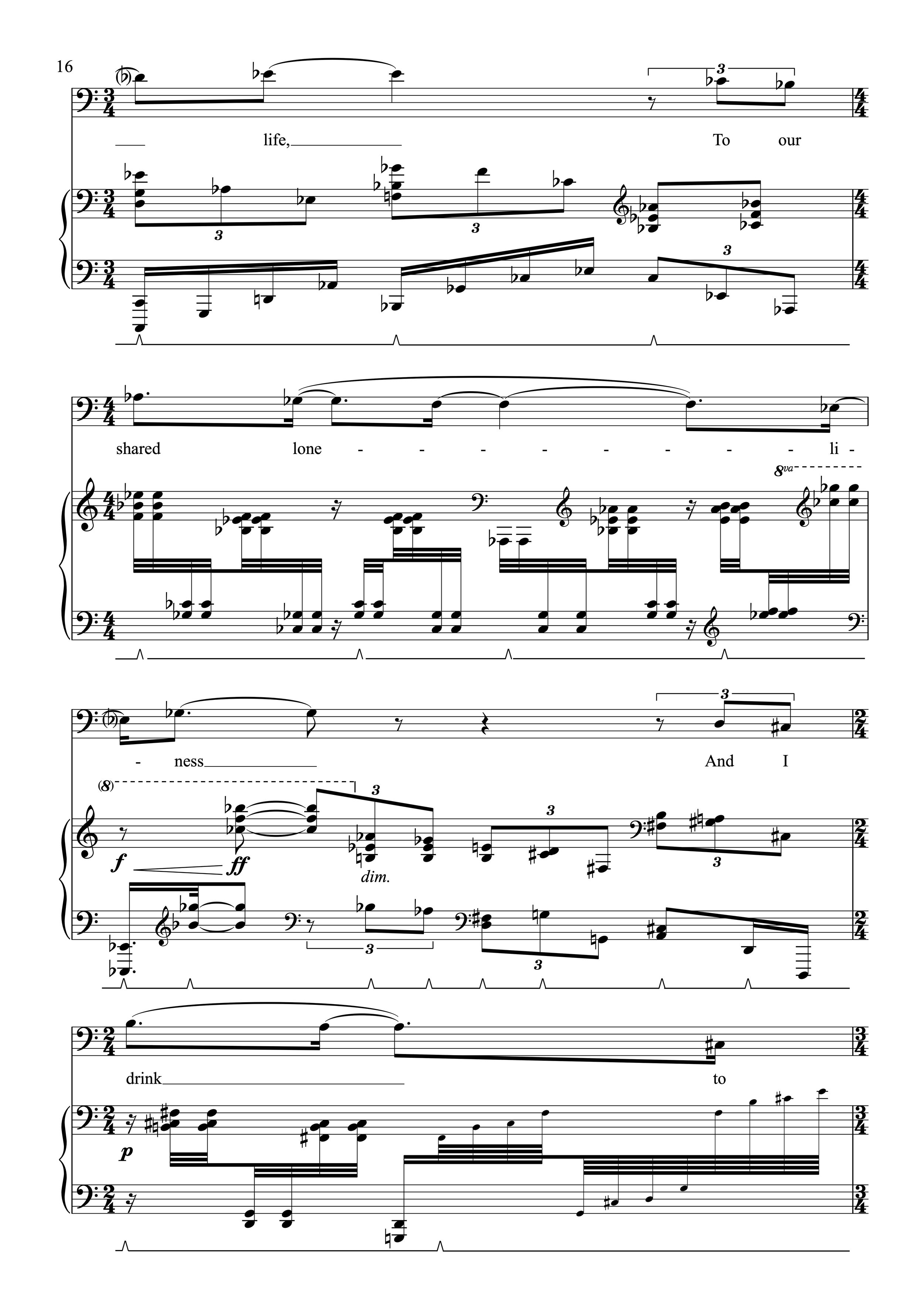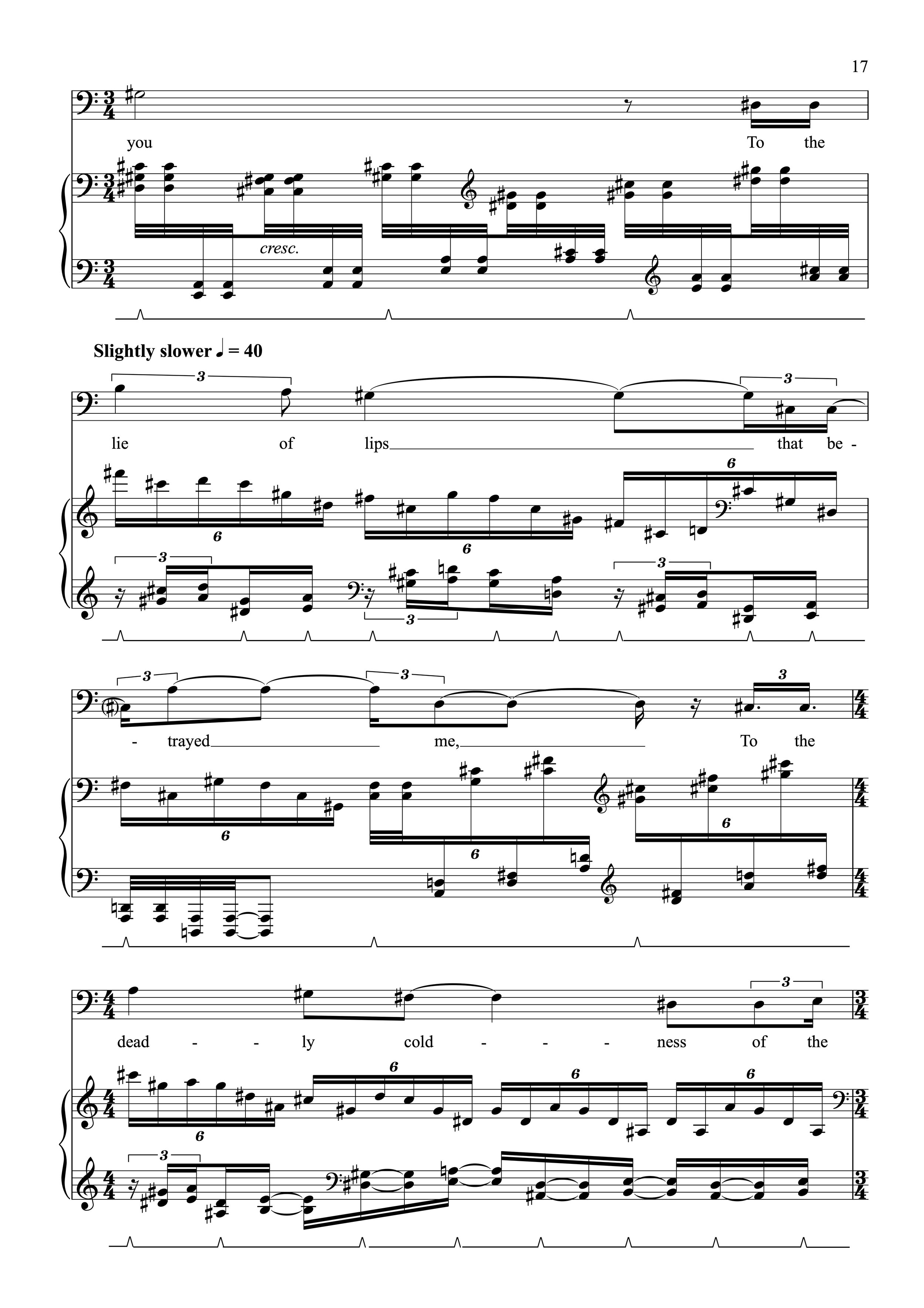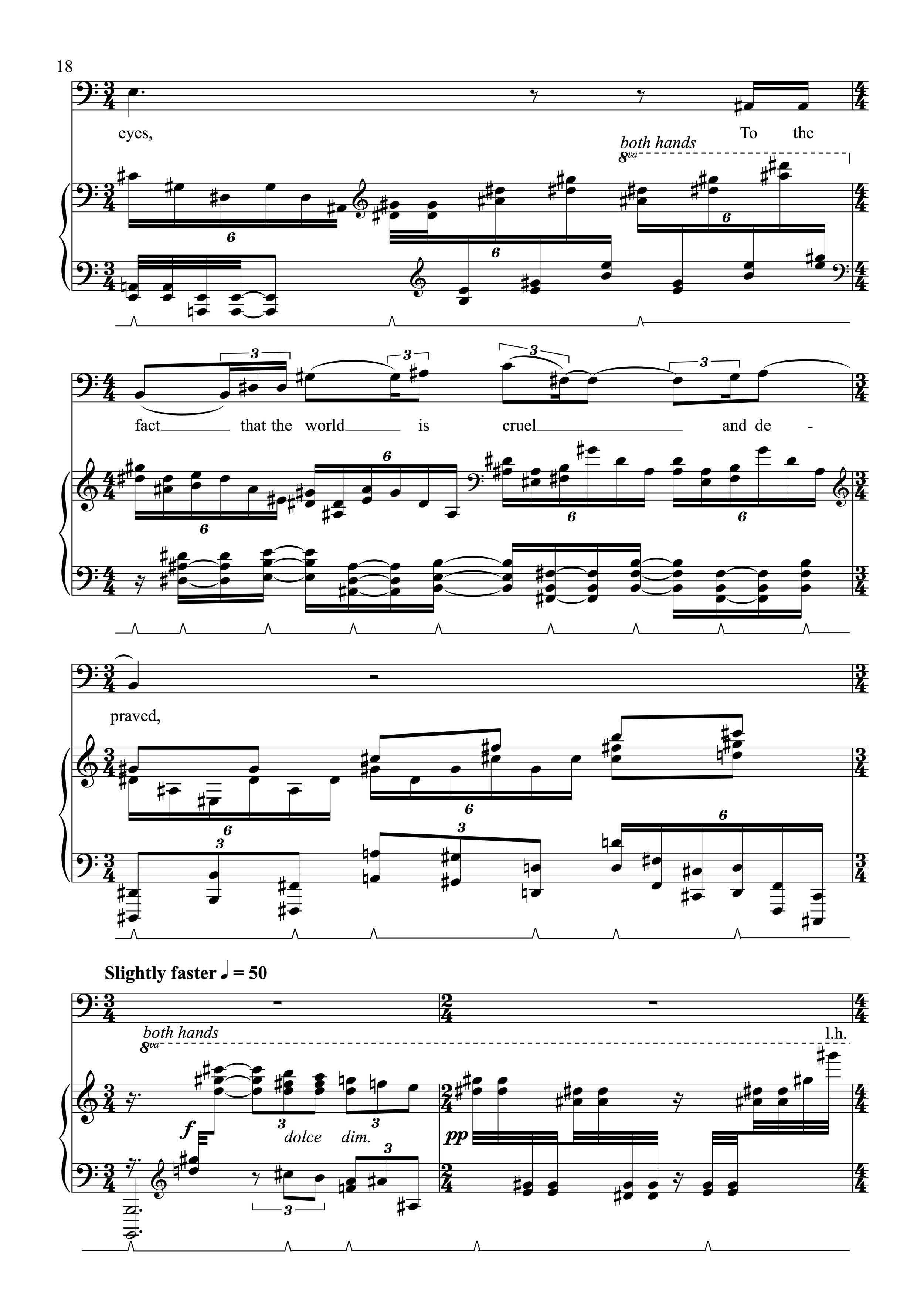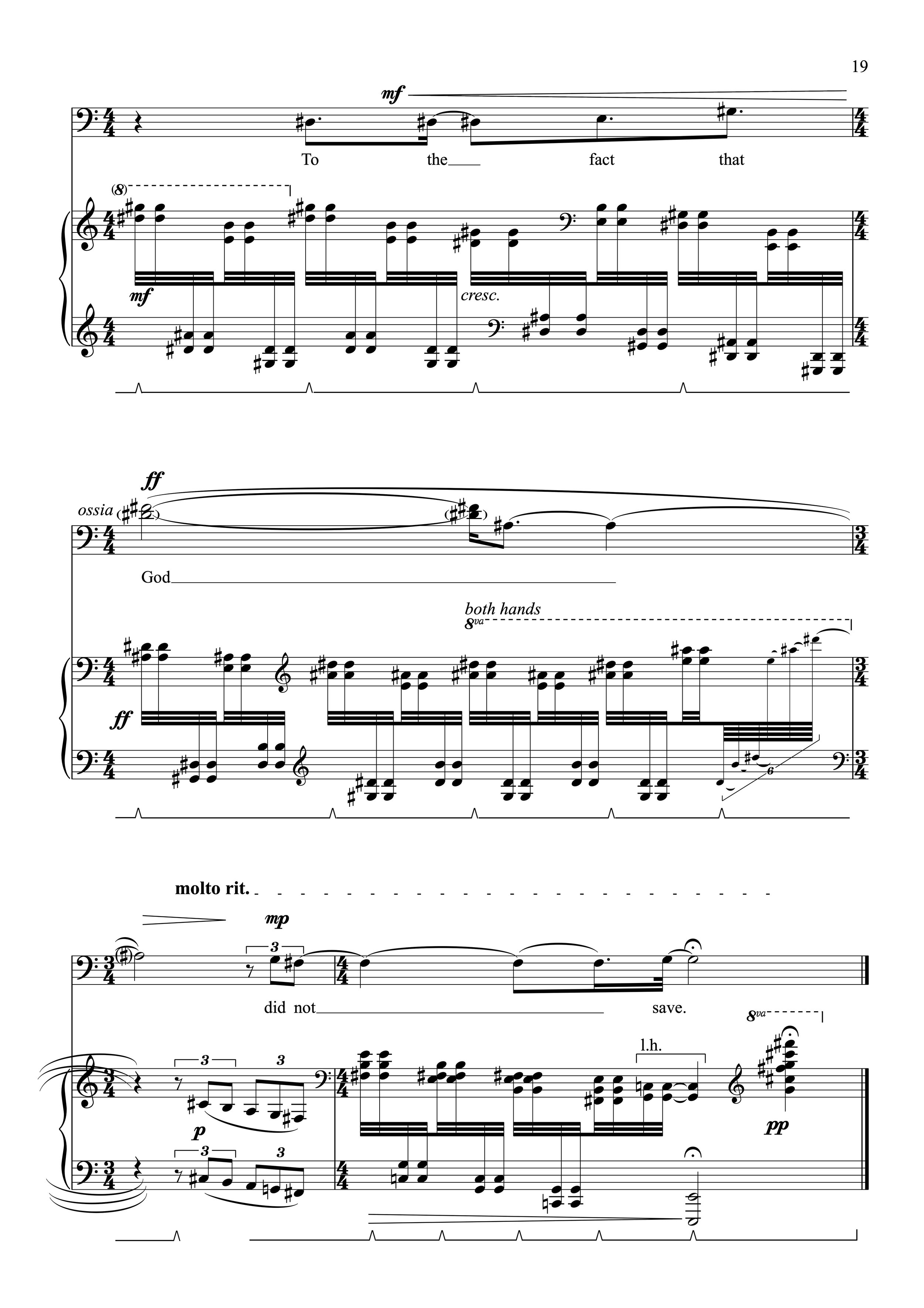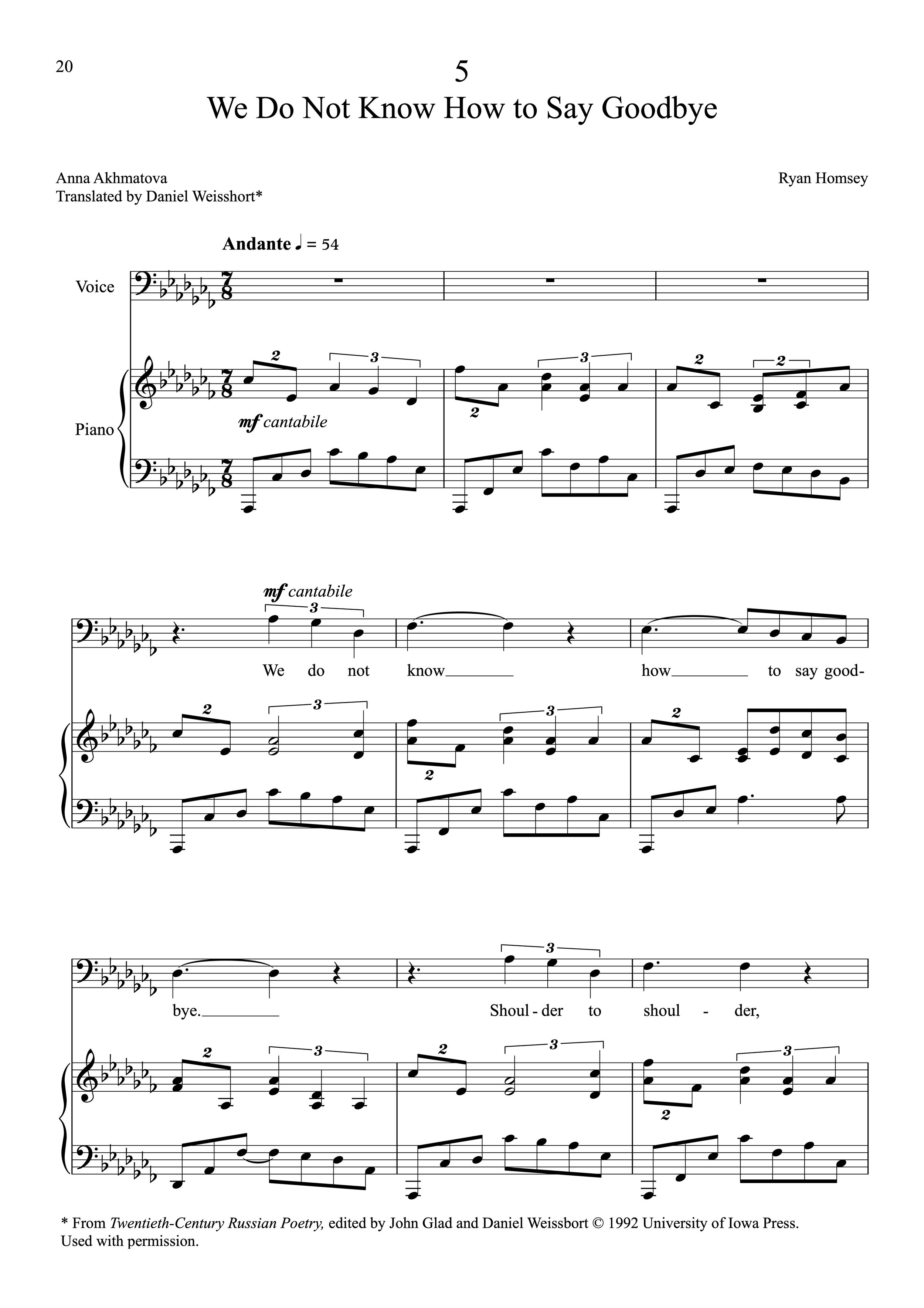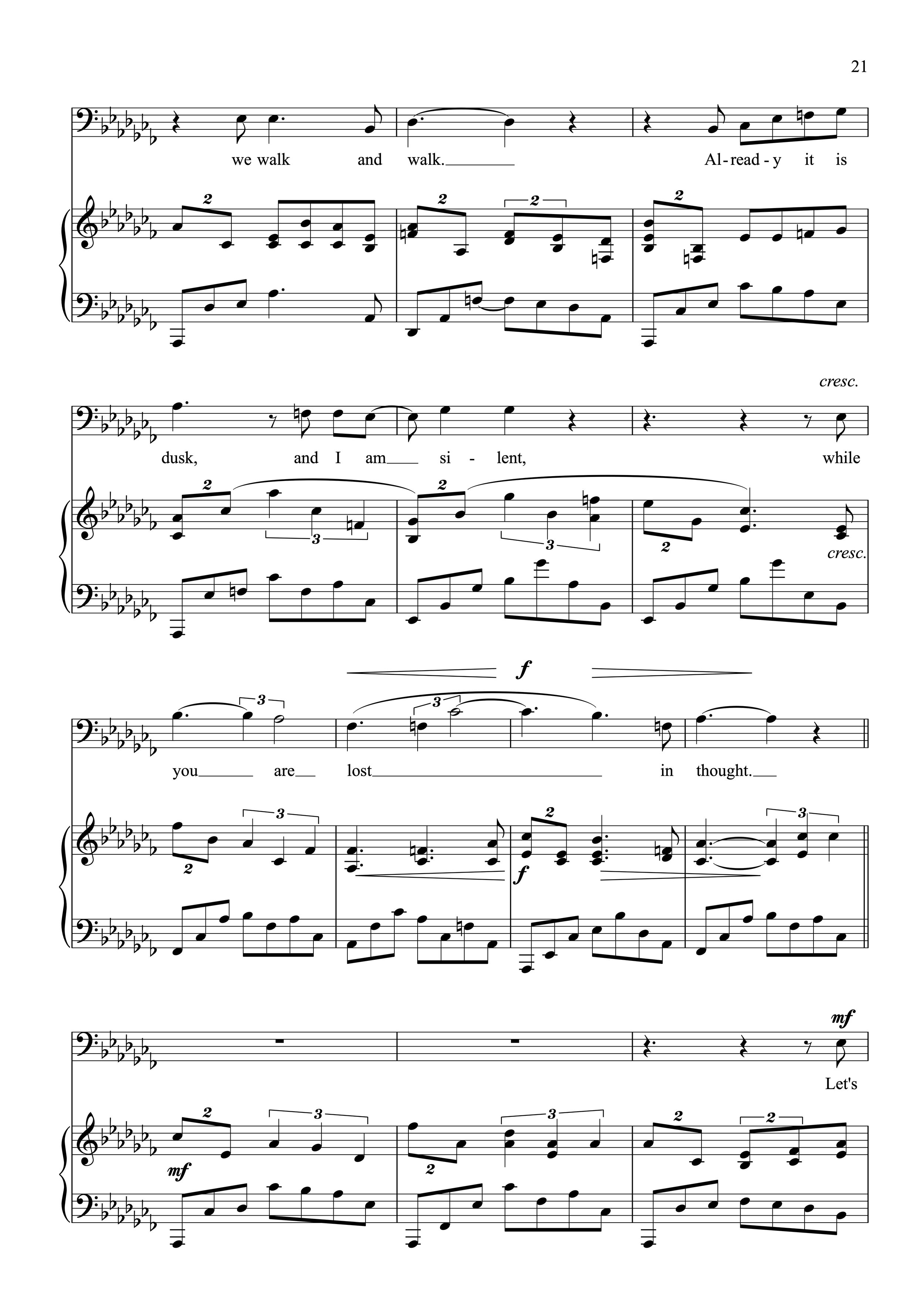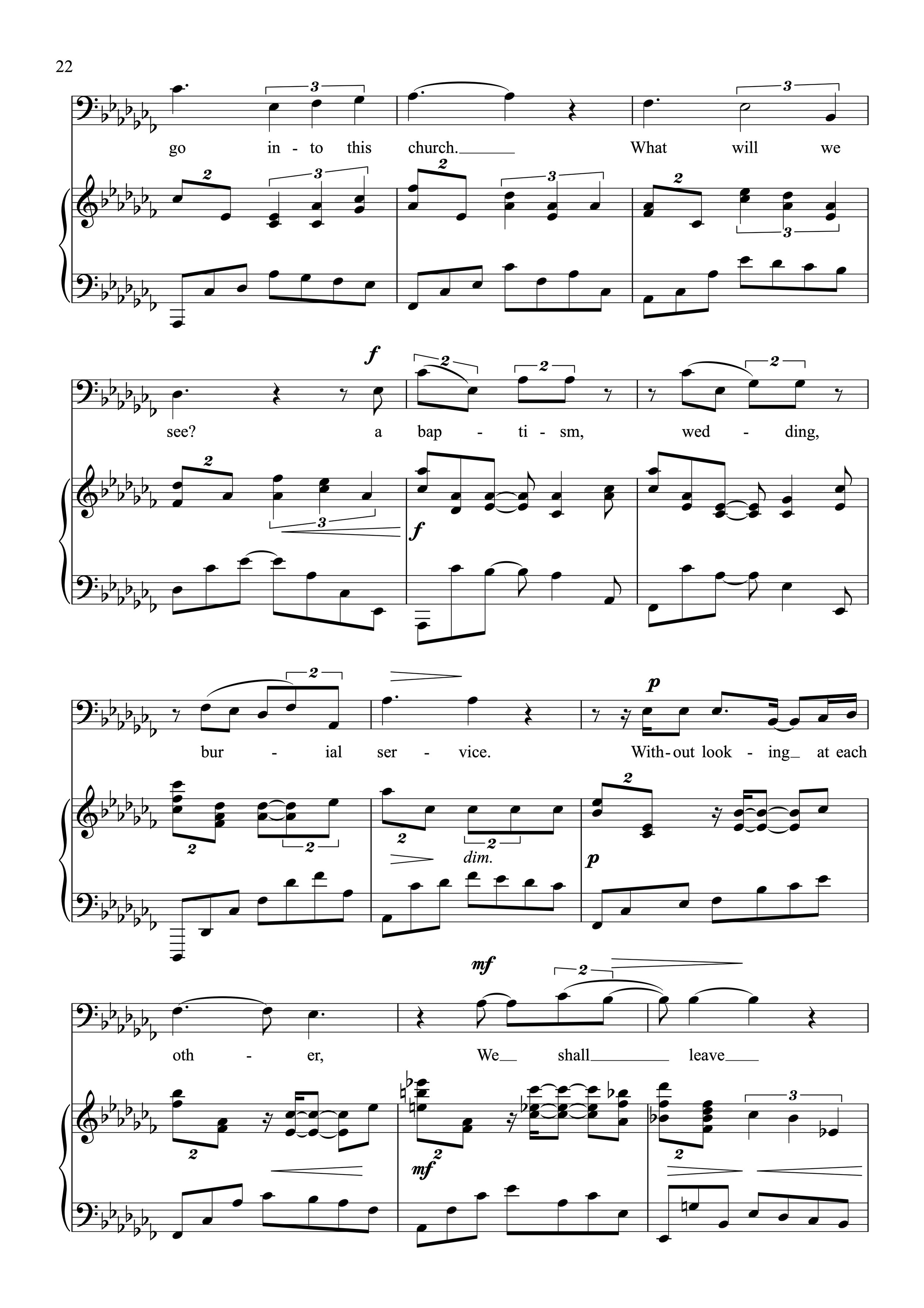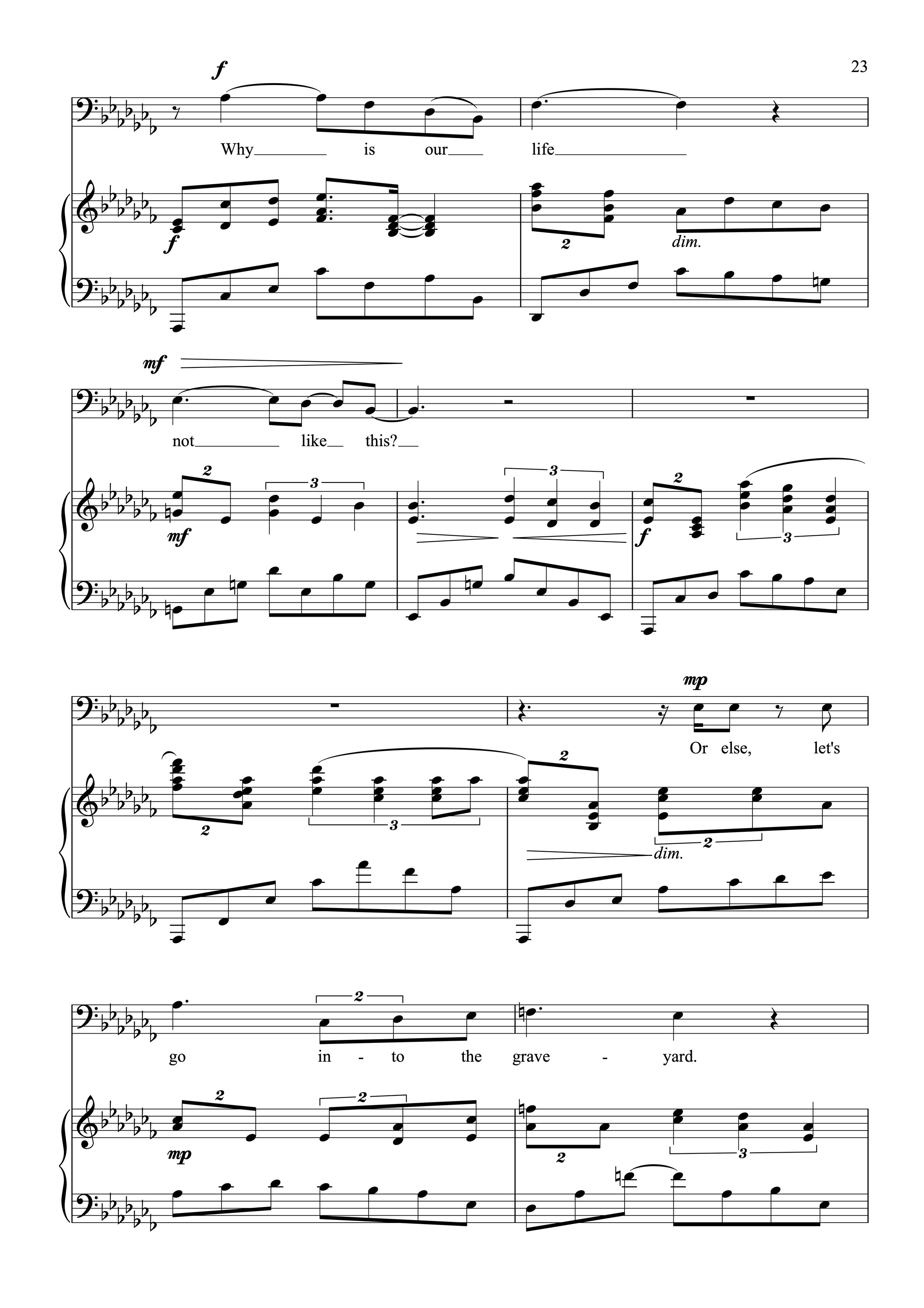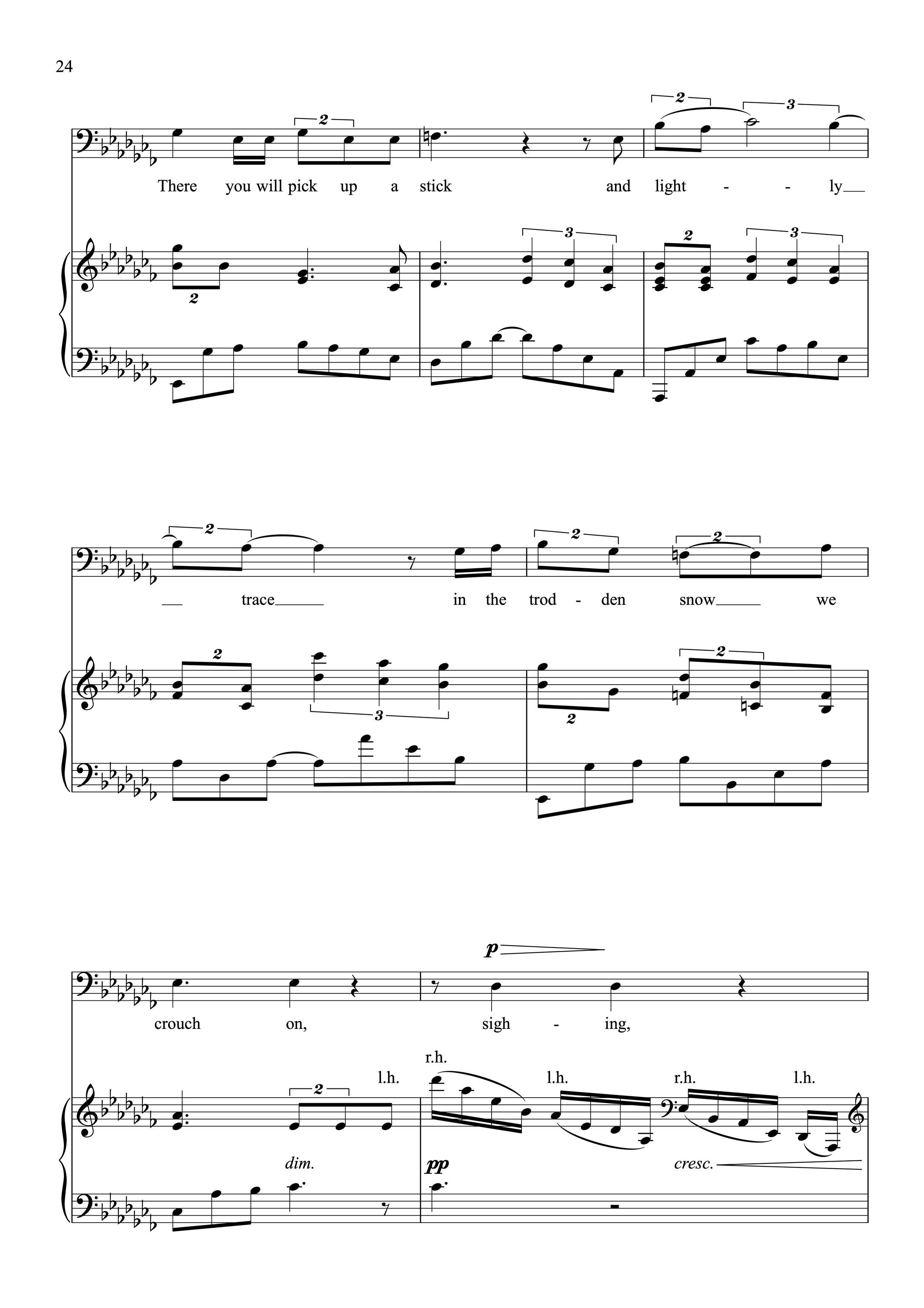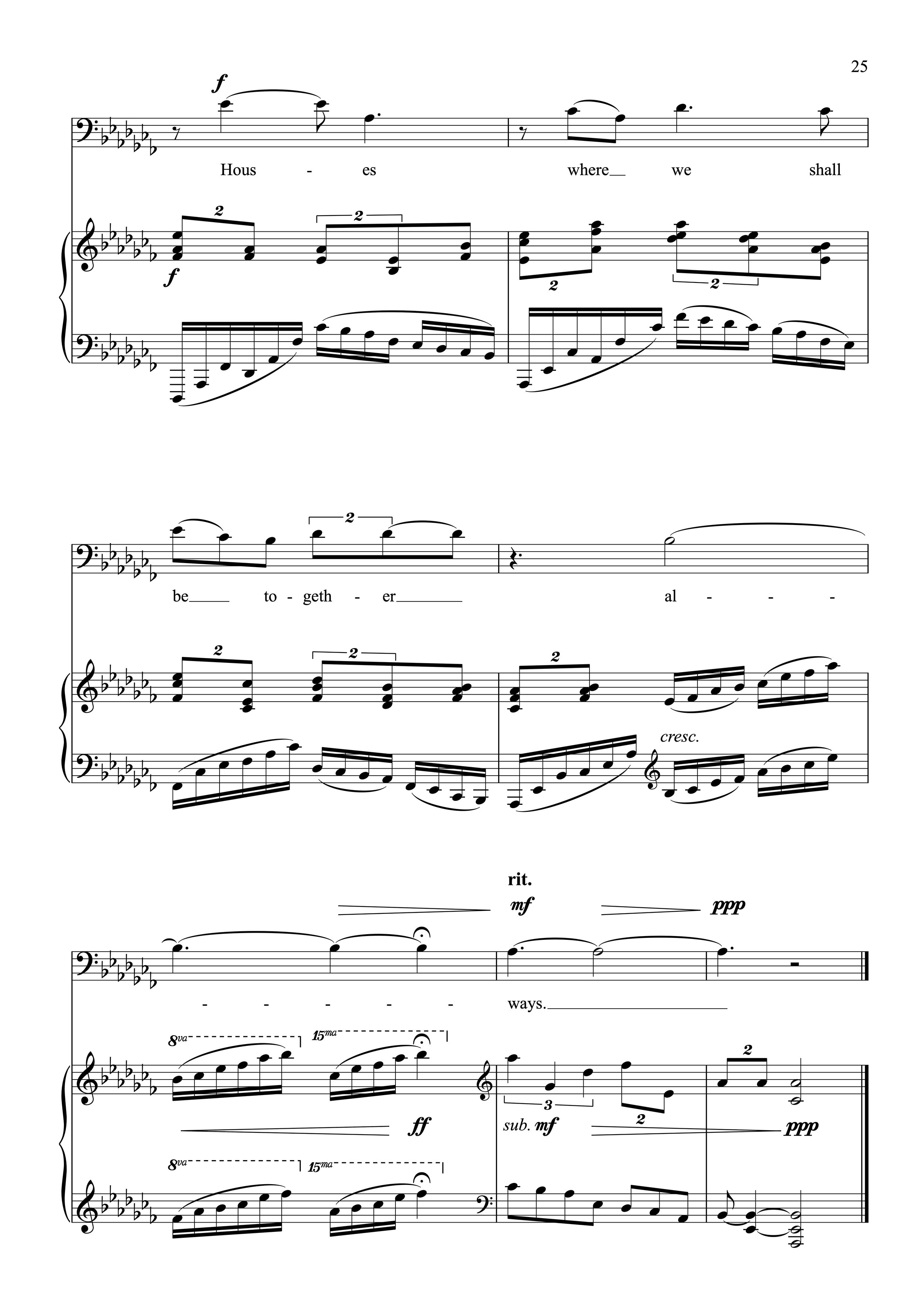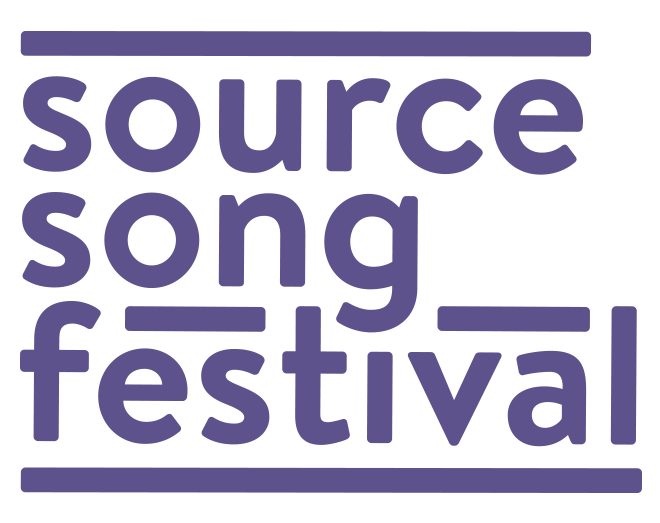Five Russian Poems (2009-2017)
Instrumentation: baritone and piano
Duration: 15'
Text: Alexander Blok and Anna Akhmatova, translated to English by Judith Hemschemeyer, Gerald Pirog, Paul Schmidt, and Daniel Weisshort
Premiere: TBD
Recording: By baritone Kelvin Chan and pianist Justyna Skoczek with audio production by Łukasz Wójcik; featured on Hawaii Public Radio’s Singing and Other Sins “New Art Songs” program (November 10, 2018, HPR-2, hosted by Gary Hickling)
Honored as a Finalist in the National Association of Teachers of Singing’s (NATS) 2020 Art Song Competition Award.
Baritone Jeremy Wong and pianist Ann DuHamel perform “The Last Toast” and “We Do Not “Know How to Say Goodbye” from Five Russian Poems during the Source Song Festival.
Composer's Notes
Five Russian Poems is a cycle of songs that tells the story of a fraught romantic relationship using texts by two of Russia’s most renowned, twentieth-century poets: Symbolist Alexander Blok (1880–1921) and post-Symbolist Anna Akhmatova (1889–1966), who are rumored to have had a real-life love affair. I was first introduced to Blok’s “To Anna Akhmatova” in 2007, which drove me to explore Akhmatova’s work in turn. While setting this song in 2008 and delving deeper into their writing, Blok’s florid mysticism and Akhmatova’s direct, psychological depth came to engross me. Their writings exist in many English translations, so it became clear how a lyric could change drastically depending upon the translator. The poems seemed to reverberate with some of the same musical color as Alexander Scriabin’s piano preludes, which are some of my favorite works to play, full of dark warmth, yet illuminating in their introspectiveness.
I developed the cycle over the better part of a decade — setting it aside, coming back to it, reflecting on it from new vantage points, sifting through the authors’ works and lives and translations to find the perfect textual material.
In my setting of “To Anna Akhmatova,” I obscured the sonorities through rhythmic displacement between the right and left hands in an effort to suggest the two conflicting worlds in Blok’s love poem: one based in reality and one that exists through the mirror’s reflection. “I Sense Your Coming” depicts a drastic range of emotions experienced while awaiting the arrival of a mystical female figure that appears as a spiritual and erotic vision. “Night, a Streetlight a Drugstore, a Street” utilizes an atmospheric, palindromic harmonic progression that reflects the singer’s feelings of confinement and disillusionment. Here the cycle shifts from Blok’s voice to Ahkmatova’s. “The Last Toast” depicts a love affair that culminates in destruction. In an emotional landscape of escalating bitterness, the piano seethes and rumbles, punctuated gesturally with quartal harmonies and a fury of collapsing passages. Finally, at the mournful pace of a couple’s stroll, “We Do Not Know How to Say Goodbye” reflects on a series of imagined scenes, underscored by a broken meter and rippling polyrhythms that press time persistently forward.
